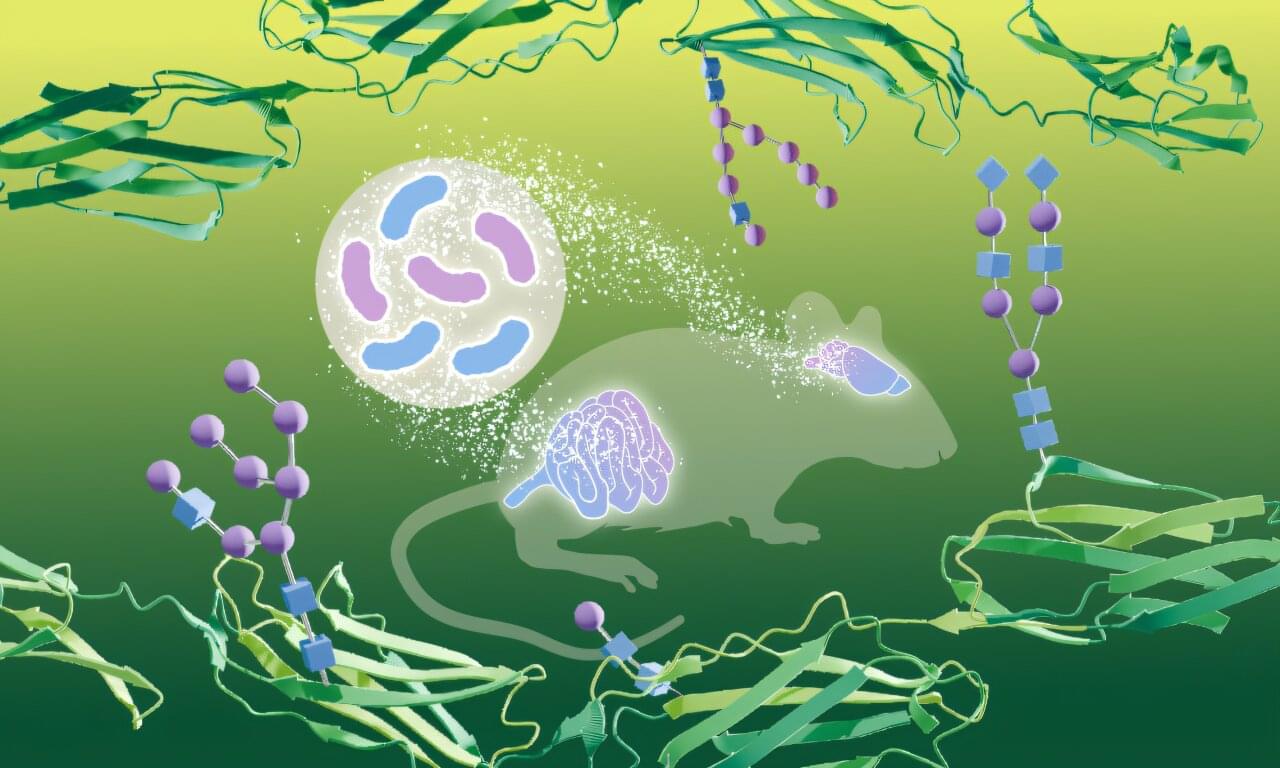Our guts are home to trillions of bacteria, and research over the last few decades has established how essential they are to our physiology—in health and disease. A new study from EMBL Heidelberg researchers shows that gut bacteria can bring about profound molecular changes in one of our most critical organs—the brain.
The new study, published in the journal Nature Structural & Molecular Biology, is the first to show that bacteria living in the gut can influence how proteins in the brain are modified by carbohydrates—a process called glycosylation. The study was made possible by a new method the scientists developed—DQGlyco—which allows them to study glycosylation at a much higher scale and resolution than previous studies.
